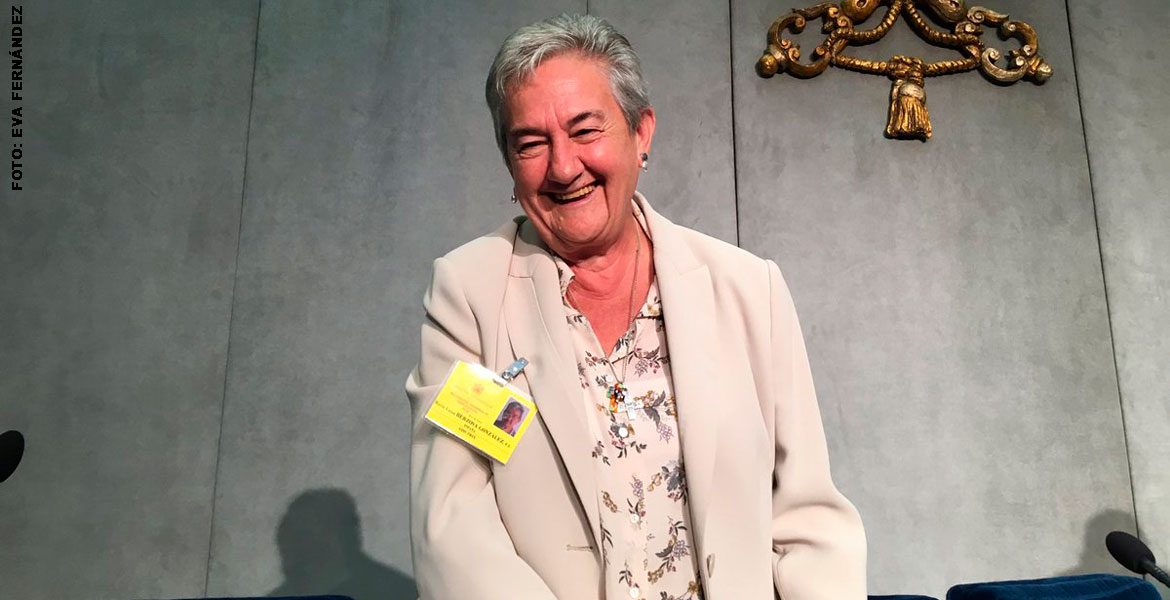This article was translated from the Spanish by Ivan and Maria Briggiler and Juan V. Fernandez de la Gala. A Spanish-language version is available here.
We are living an unprecedented ecclesial event. In October 2021, Pope Francis inaugurated the Synod on Synodality with three very significant themes: participation, communion and mission. We are participating in a process that affects us as a church, and to which we have received a universal invitation.
All baptized people can participate: both those who consider themselves active members of the church as well as those who feel remote, even if they do not have a Christian faith or feel they belong within the Catholic Church. We can all provide our voice, our contribution and our suggestions on this several-stage path.
First, there was the diocesan stage. A second stage took place at the continental level, and we are now embarking on a third universal stage, which is an important chapter that will lead us to the concluding event in October 2024.
We are living an unprecedented ecclesial event.
Very significant is the participation of groups (doing high quality work) on the margins of the church, whom we have either not allowed to enter the church or forced to leave through our behavior.
It is good news that the doors of the church have been opened and that “there is room for everyone,” as Pope Francis told us at World Youth Day last August. Marginalized groups must be recognized and named so that they can be welcomed: divorced and remarried Catholics, LGBTQ people, secularized priests, various kinds of family nuclei, incarcerated people, intellectuals and women.
And this welcome must take place at all levels, from the pope to the cardinals, archbishops, priests and also from all of us, who feel part of the church. We must locate all people at the center, with no one on the margins, because the person is at the center of sacredness.
The only referent is Jesus and his Gospel. He always welcomes, forgives, includes, approaches, touches and goes beyond the law, with his sole objective to save or heal the person who comes to him. People who arrive at him broken return home recovered, beginning a new stage. Jesus is always offering us an opportunity to change our path.
In our hearts, we fervently hope that this synodal church will become a safe place, a warm refuge, with sustaining hands and a rejoicing hug when we return. But this cannot be done without a personal conversion, without turning to the Spirit, who is able to change our heart from stone to flesh.
Our communities help us; we cannot live our faith alone. They invite us to compromise and they maintain and encourage us in the hope of a better future, the church of which God dreams.
The only referent is Jesus and the Gospel. He always welcomes, forgives, includes, approaches, touches and goes beyond the law, with his sole objective to save or heal the person who comes to him.
We live an exciting moment, a historic opportunity. Let us not pass it by. Let us dream big. There are already green shoots. Perhaps our eyes are not clean and so we do not see them, but they exist. They are pushing towards a church as the People of God, as a community of communities, that widens the space of its tent so all can enter.
We must do this with our full name, and without titles or baroque clothing or gestures, but only with signs that make us close to people.
Now is the time. Let us open the eyes and ears of our hearts. Let us feel the gentle breeze of the Spirit, a wind that cleanses and pushes. Thus, we can be the church of Jesus. May it not be the final goal, but a bridge and a way to take us always to him.
Let me finish with some words by the Spanish poet Antonio Machado:
Today is always possible. Life is the present moment. And now is the time to keep the promises we made to each other. Because yesterday we didn’t, because tomorrow will be late. Now. Just now.




0 Comments